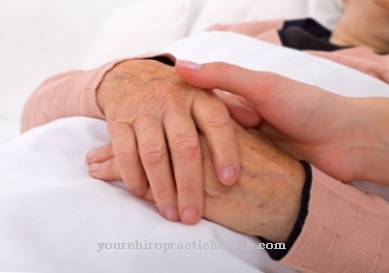Abulie is a symptom of various diseases, which mainly manifests itself in the form of lack of will and weak will. Accordingly, the abulia cannot be treated independently. Rather, after the diagnosis, the treatment of the underlying disease is in the foreground.
What is Abulie?

© bilderzwerg - stock.adobe.com
Abulia is a pathological lack of will combined with weak will, indecision and the inability to make decisions. It is not a disease of its own, but a symptom of another disease. It occurs most often in diseases of the forehead brain, such as tumors, neuroses or depression, as well as in schizophrenic psychoses.
Affected people would like to take an action, but are not able to make a decision in this regard or to carry it out. This applies to work as well as leisure activities and self-sufficiency. Patients can no longer put good resolutions into practice, actions are repeatedly postponed and it is not possible to concentrate on the actual project.
As a result, the person loses their willpower and becomes less and less socially active, which can lead to complete isolation. In addition, the inability to speak due to a loss of the functional supply of the vocal apparatus is also referred to as abulia.
causes
Abulia occurs as a result of various diseases. As different as these diseases can be, so are their triggers. Often, however, the pathological lack of will occurs in the context of depression. This, in turn, can have many causes that have not yet been fully clarified.
What is certain, however, is that there are usually several internal and external factors that interact. These include heredity, alcohol, drugs, certain medications, physical illnesses, mental disorders, stress and biochemical triggers, among others. The pathological lack of will in connection with cannabis addiction occurs more and more frequently.
But brain tumors, neuroses or a schizophrenic disorder can also trigger abulia. Often it is a consequence of sadness, listlessness or the impoverishment of the emotional life.
You can find your medication here
➔ Medicines against depressive moods & to lighten the moodDiseases with this symptom
- tumor
- depressions
- eating disorder
- Brain tumor
- Catatonic schizophrenia
- Paranoid schizophrenia
- Cardiac neurosis (heart phobia)
- Drug psychosis
- Affective disorders
- Postpartum depression
- Bipolar disorder
- Winter depression
- Schizoaffective Disorders
- Schizoid personality disorder
- Schizotypic personality disorder
- Anxiety disorder
- Obsessive-compulsive disorder
- hypochondria
Diagnosis & course
If abulia is suspected, a doctor should be consulted immediately. Finally, the diagnosis presupposes a previous illness, such as a brain tumor, schizophrenia, depression or a neurosis. If such a disease has not yet been identified, the doctor will initiate appropriate investigations. The first point of contact is usually the family doctor.
He will check the physical health and investigate suspicions of various psychological disorders in a detailed conversation. The doctor will then call in appropriate specialists. They carry out further examinations, which include behavioral observations of the patient, neuropsychological test procedures and questioning of relatives.
Only as a result of this can specific therapeutic measures be started. However, it is often problematic that in many cases the weak will itself prevents the decision to consult a doctor. This means that early diagnosis is extremely rare. As the disease progresses, the abulia is often accompanied by melancholy.
In addition, there may be muteness (mutism) or a taciturn language with long interruptions and the inability to speak longer. In addition, the Abulia often leads to social isolation and in many cases to alcohol or drug addiction. It is not uncommon for the problem to end in the patient losing their will to live.
Complications
The untreated abulia often leads to permanent melancholy or even depression. Patients often justify their lack of will as a temporary phenomenon based on increased stress. They avoid going to the doctor and take refuge in medication to calm them down or drink more alcohol. This in turn has the consequence that in many cases a dependency occurs.
Abulia can also affect communication with other people. This means that those affected only speak less or not at all. In some cases, their speech is slowed down and it is difficult for the other person to follow them in their thoughts. The multitude of drugs assumes that the correct diagnosis is made. Common complications in the treatment of Abulia are the side effects of the drugs and the dependence on the therapist.
For example, patients feel safe under the care of their doctor and can structure their everyday life. Once they are on their own again, their suffering worsens. The danger with drugs is not just addiction. They can also cause disturbances in the gastrointestinal tract, libido and heart rhythm. Another complication of drug treatment for abulia is weight gain. The patients feel good and manage their everyday life as usual, but suffer from their increased weight.
When should you go to the doctor?
Abulie is initially a general weakness of will. It is a symptom of several different diseases and can only be treated as part of the treatment of the underlying disease. Those affected by Abulia are not able to put a project into practice or to make decisions - be it professional or private. As the Abulia progresses, people withdraw further and further up to the extreme case of social isolation. Parallel to this definition, Abulie also denotes the organically conditioned inability to speak.
Abulia is mainly associated with frontal brain diseases, neuroses, depression and schizophrenic psychoses. To initiate therapy, the family doctor should first be consulted. After the initial examinations, they often refer their patients to a neurologist, psychiatrist, psychologist or psychotherapist. Abulia therapy should be given as soon as possible.
Otherwise there is a threat of a manifestation of depression as well as alcohol or tablet abuse in order to be able to endure the situation better, which, however, would create new health problems and set a vicious cycle in motion. In the treatment of Abulia, it has proven helpful to involve relatives of the patient who act as co-therapists, so to speak.
Doctors & therapists in your area
Treatment & Therapy
Abulia is not an independent disease, but the symptom of another disease. Because of this, it cannot be treated on its own. Rather, it is first of all to treat the underlying disease. If the pathological lack of will occurs, for example in the context of depression, the treatment of this disease is in the foreground.
In this case, both the use of medication and psychotherapeutic measures can be prescribed. It is important that all underlying illnesses are identified first, as several mental disorders are often present at the same time. In this case, only a holistic therapeutic approach can lead to success. The relatives are also regularly involved.
There are different forms of therapy depending on the disorder pattern and behavioral problems. Some approaches focus on problem solving and behavior management. Other approaches, however, are devoted to manipulating or modifying the patient's environment. It is always helpful if people affected by Abulia structure their daily routine clearly and concentrate on a few tasks.
This can prevent failures that would otherwise lead to self-doubt and intensify the weak will. A written daily schedule and checklists can be very useful. You can provide relief and counteract the constant postponement of certain actions. In addition, the patients usually need external help in carrying out their daily tasks as well as encouragement and appropriate praise. Family members are often called in as co-therapists.
Outlook & forecast
The prognosis always depends on the underlying condition of an abulia. If the symptoms are based on depression or schizophrenia, the weakness of will may worsen further. However, if the cause is recognized early and treated adequately, the disease will also recede over time. However, automatisms that have already been formed can cause difficulties in everyday life for a long time after the patient has recovered.
Depending on the severity of the abulia, therapy can have a positive effect on the course. Abulia as a result of a psychosis can also be treated effectively with quick measures. The prognosis for an Abulia is accordingly positive. Even with a weak will as a result of a neurosis or other mental disorders, therapy can increase the chances of success.
The treatment is a lengthy process that is often associated with setbacks, as various problems can develop as a result of the Abulia, and the procrastination can often lead to exclusion from social life. The outlook is positive, however, provided the right measures to treat the abulia and the underlying cause are taken early on.
You can find your medication here
➔ Medicines against depressive moods & to lighten the moodprevention
A timely diagnosis of the underlying disease is necessary to prevent abulia. For example, it helps if depression is detected at an early stage. In this case, professional therapeutic measures can be initiated even before a pathological lack of will occurs and the patient may possibly be completely isolated.
If diseases that favor abulia occur, the people around them must be very attentive. You should regularly monitor the patient's behavior and inform the doctor of any abnormalities.
You can do that yourself
Depending on the underlying disease, those affected can support the treatment of pathological lack of will with self-help measures. The transition from outside to self-help is fluid. Coping strategies learned in therapy must be integrated independently into everyday life. This also reduces the risk of relapse.
In order to counteract an apathetic and lackluster mood, a structured daily plan in written form is helpful, which makes it difficult to repeatedly postpone activities. Excessive demands and unrealistic goals are to be avoided. It makes sense to prioritize the daily goals and a balanced distribution of unpleasant and pleasant activities.
A daily and weekly plan drawn up in this way offers important planning aid on the one hand and serves as motivation through documented healing successes on the other. For recurring, complex tasks, checklists are recommended as a relief. Those affected ensure contact with relatives and friends through regular meetings with binding appointments. Self-help groups and patient clubs also offer the opportunity to counteract social withdrawal and isolation.
Depending on the underlying main illnesses, those affected can train with mindfulness exercises in everyday life to differentiate between healthy withdrawal and self-protection behavior on the one hand and pathological lack of will on the other. Some patients benefit (depending on their individual life situation) from living with pets. They offer an opportunity and motivation to get out of the paralyzing lack of will. It is important that there is no additional pressure and that being with the animals can be experienced positively.



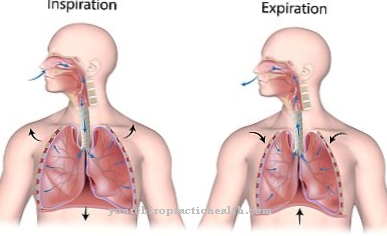






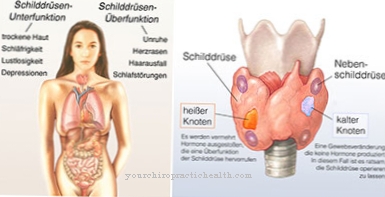






.jpg)




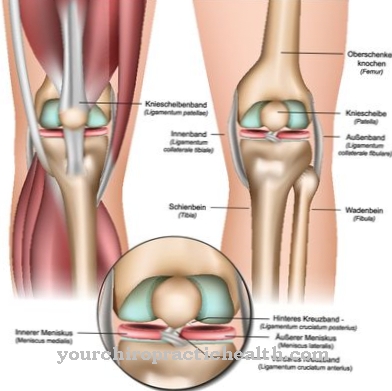
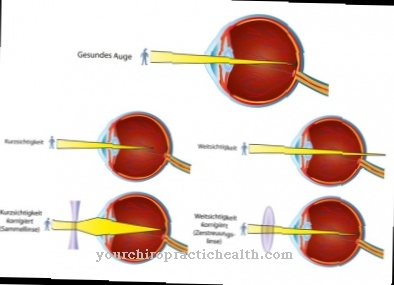
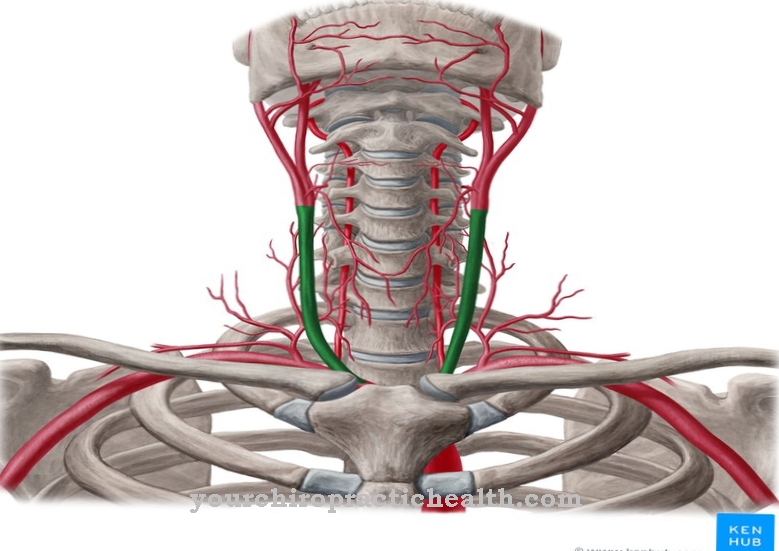
.jpg)

